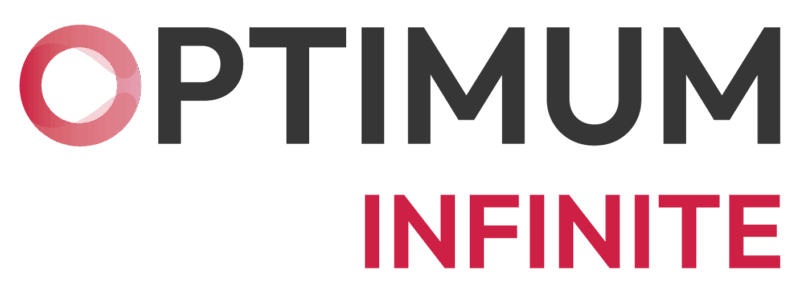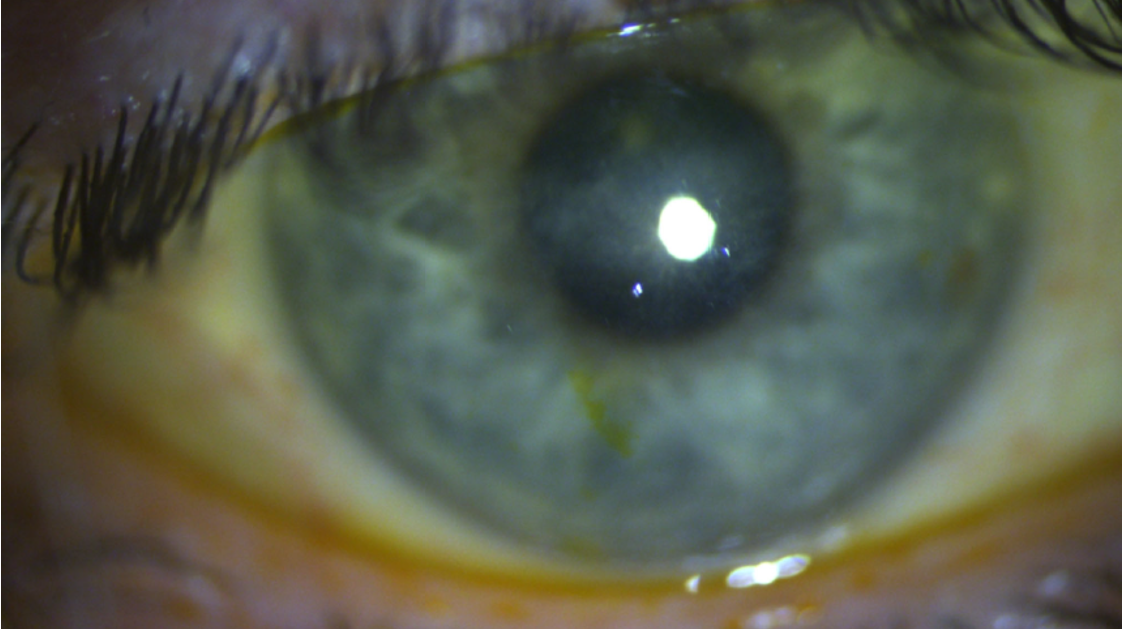Patient History
Indication:
Keratoconus, Irregular corneas R+L
Medical History:
• None. No family history of eye disease
Ocular History:
• Exact time of diagnosis unknown but it was before 1998
• Penetrating graft right eye May 2001
Exam & Recommendations
Spectacle Refraction: OD: -2.00/-2.00 x 120 OS: -5.50/-3.50 x 90 | Add 0.00 0.00 | VA (D) 20/60 20/40 | VA (N) 20/60 20/30 |
Uncorrected OD: OS: |
|
<20/400 <20/400 |
N/A 20/50 |
Correction with CL OD: OS: |
|
20/20 20/25 |
20/20 20/20 |

Fig. 1 – Right Eye Fluorescein showing central clearance

Fig. 2 – Left Eye Picture shows lens with one fenestration from a previous lens. The new lens was made to the identical design in Optimum Infinite material without fenestration. Fluorescein showing central alignment.
Lens Parameters
Eye | BOZR | TD | BVP | VA |
R | 7.80 | 15.00 | -1.50 | 20/20 |
L | 7.70 | 14.00 | -1.25 | 20/20 |
Fit
R – Central clearance 255 microns, Limbal clearance, Conjunctival landing zone alignment.
L – Central alignment with perilimbal alignment.
Lens Material: Optimum Infinite (Clear R + L). No fenestration.
Lens Solutions: Crystal cleaner, Biotrue MP for disinfection and unpreserved saline for insertion.
Follow-up
Lens Change
R – Several refits have been undertaken during the period 2010-2020. The main reason for this was his intolerance to the lens, giving a maximum wearing time of 2 hours.
30th August 2019 the lens design was changed from 14.00 mm diameter to a 15.00 mm diameter. In this process no contact with the entire cornea was achieved. The material used was Fluoroxyfocon A.
10th April 2020 the lens was changed due to instability of the lens resulting in flexing. No change was made in the design but the material was changed to Optimum Infinite.
L – New lens was dispensed 20th April 2020 without a change in lens design. The material was changed from Hexafocon A to Optimum Infinite.
OCT Images


Fig 3. – Right Eye OCT showing central clearance 225 microns
Fig 4. – Right Eye OCT showing limbal clearance and conjunctivaI alignment

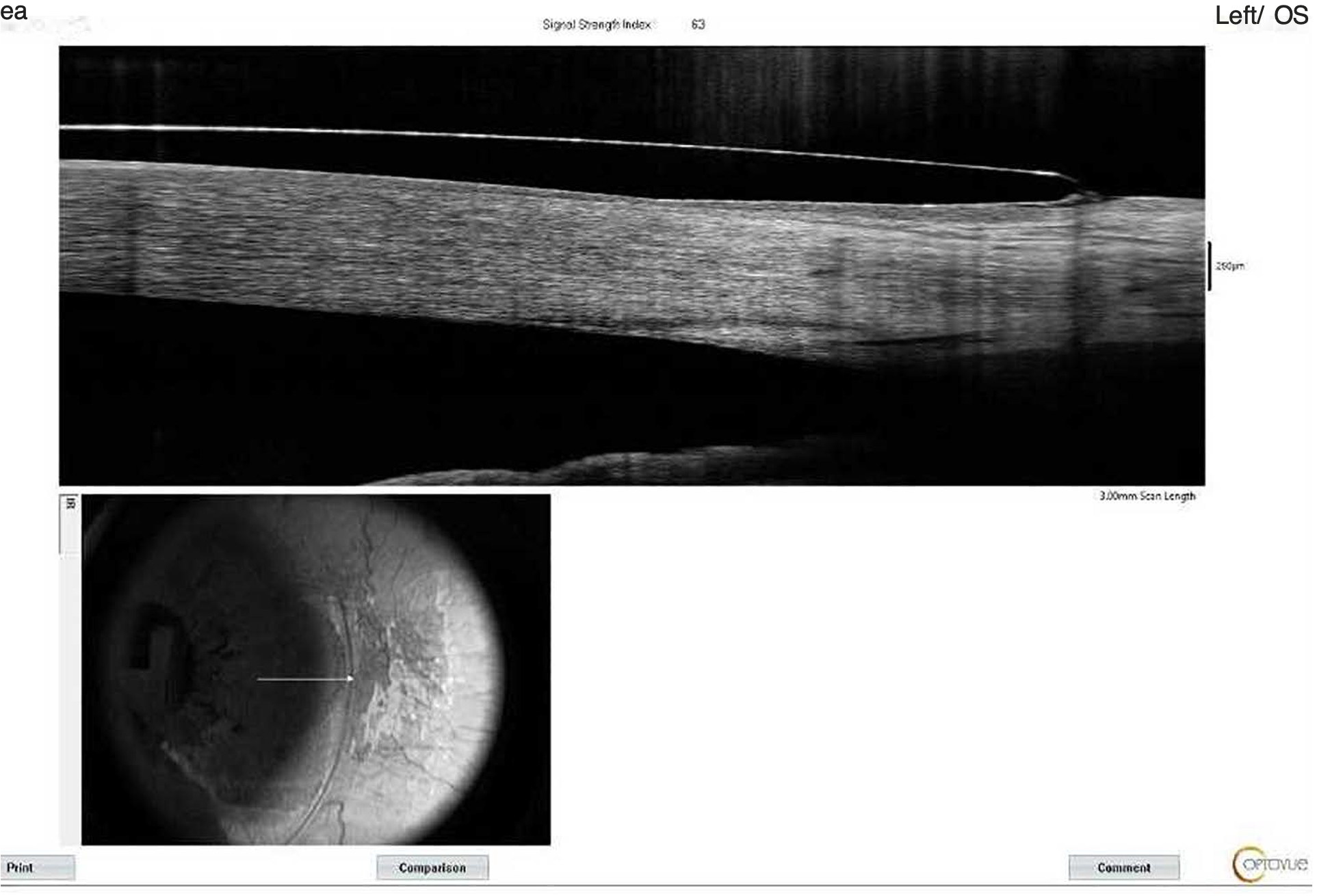
Fig 5. – Left Eye OCT showing central alignment
Fig 6. – Left Eye OCT showing edge alignment on perilimbal conjunctiva
Clinical Evaluation
24th July 2020 – WT
R – Flexible wear up to 7 hours, but still not using the lens every day. This is mainly due to not getting around to inserting the lens out of old habit of just using the left lens.
L – Full day wear up to 18 hours every day.
Vision – very satisfactory and stable.
Comfort – Excellent comfort R&L during daytime use. No dryness experienced.
Symptoms Before/After
R – For several years the right lens was not used regularly due to discomfort. Various changes in design was undertaken without much success. The reason for not using the right lens was partly due to discomfort and partly due to not giving the lens a chance to settle and adapt to the lens.
L – Has been troubled by lens misting on and off for some time (years). Using Optimum Infinite material, this misting has not been a problem for the 3 months so far.
Fit Topography
R – The final lens design was. HB 15.00. Large BOZO and spherical 5 curves. Central clearance 225 microns, with no corneal or limbal touch Fig. 1,3 & 4.
L – The final lens design was HB 14.00. BOZO of 8.00mm with central alignment & perilimbal alignment Fig. 2, 5 & 6.
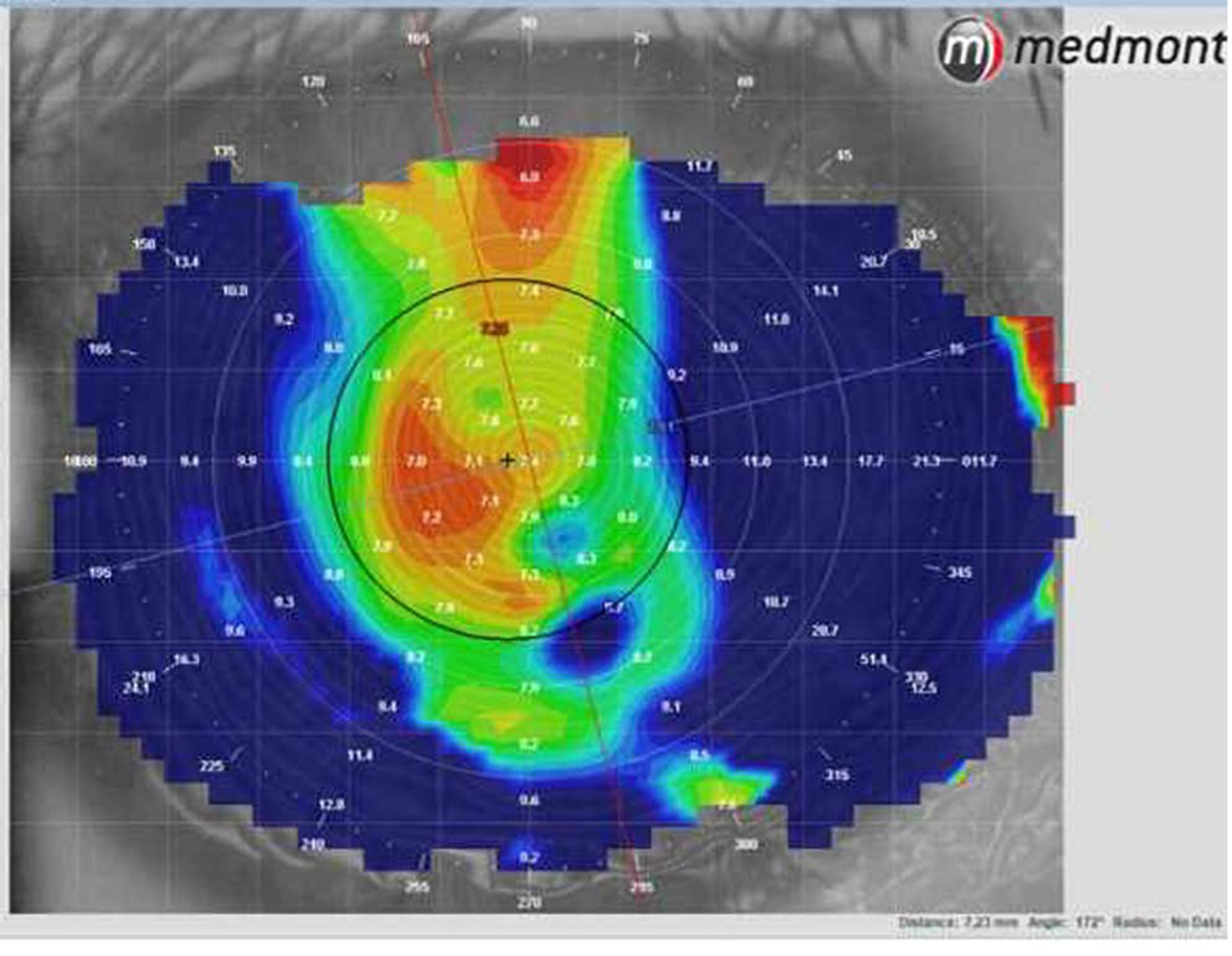
Fig 7. – RE Medmont data
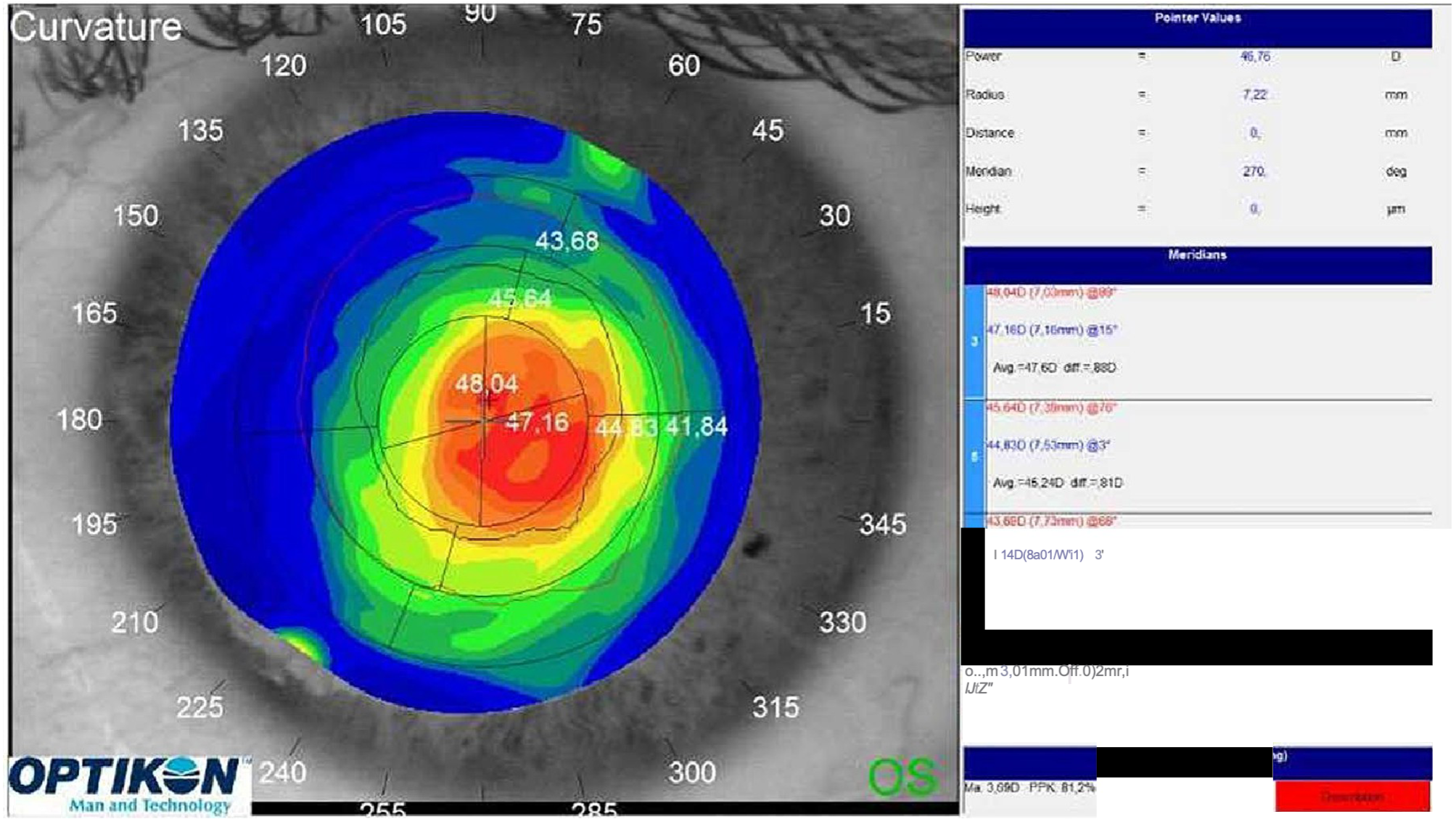
Fig 8. – LE Keratron data
Conclusion
Significant improvement in vision due to establishing the possibility to achieve binocular vision. There is still some way to go until the wearing time for the right lens gets up to normal. No adverse ocular reaction have been observed.
